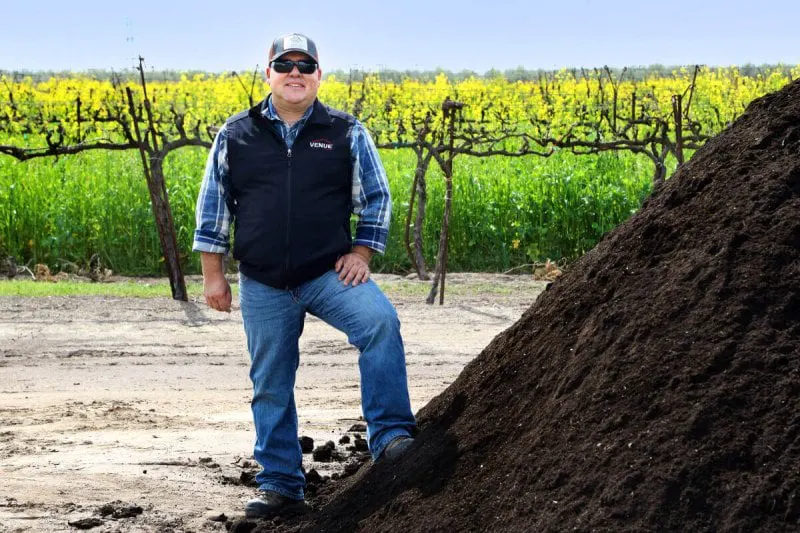Viewpoint: Regenerative farming modeled on organic agriculture could reduce greenhouse gas emissions, pro-organic study claims
Viewpoint: Regenerative farming modeled on organic agriculture could reduce greenhouse gas emissions, pro-organic study claims
Clarisa Diaz, Michelle Cheng | Quartz | December 14, 2021
XLinkedInFacebookRedditBlueskyThreads


A recent study by Bain & Company and Nature United, the Canadian affiliate organization of the Nature Conservancy, shows that transitioning to regenerative farming techniques can help farmers reduce their emissions and increase profits. It says emissions could be cut in half per hectare farmed (one hectare is equivalent to 2.47 acres).
Follow the latest news and policy debates on sustainable agriculture, biomedicine, and other ‘disruptive’ innovations. Subscribe to our newsletter.
The study with Bain looked more specifically at four techniques that would be the most affordable with more immediate results for farmers:
- Crop rotation, which means changing out which crops are grown according to weather patterns and seasons.
- Cover crops, which are crops that are planted to enrich the soil and protect cash crops.
- Reduced tillage, or decreasing the amount soil is moved or disturbed in order to let it settle and harbor microorganisms that provide nutrients.
- Nutrient management is the balancing of the soil condition, water, and weather conditions in order to achieve the optimal amount of nutrients necessary for crops.
The idea is that all of these techniques are part of a farming system that can produce nutrient-rich soil to grow food year after year with minimal intervention.
This is an excerpt. Read the original post here.
XLinkedInFacebookRedditBlueskyThreads

 | Videos | More... |

Video: Nuclear energy will destroy us? Global warming is an existential threat? Chemicals are massacring bees? Donate to the Green Industrial Complex!
 | Bees & Pollinators | More... |

GLP podcast: Science journalism is a mess. Here’s how to fix it

Mosquito massacre: Can we safely tackle malaria with a CRISPR gene drive?

Are we facing an ‘Insect Apocalypse’ caused by ‘intensive, industrial’ farming and agricultural chemicals? The media say yes; Science says ‘no’
 | Infographics | More... |

Infographic: Global regulatory and health research agencies on whether glyphosate causes cancer
Does glyphosate—the world's most heavily-used herbicide—pose serious harm to humans? Is it carcinogenic? Those issues are of both legal and ...
 | GMO FAQs | More... |

Why is there controversy over GMO foods but not GMO drugs?
Genetic Literacy Project

How are GMOs labeled around the world?
Genetic Literacy Project

How does genetic engineering differ from conventional breeding?
Genetic Literacy Project
 | GLP Profiles | More... |

Alex Jones: Right-wing conspiracy theorist stokes fear of GMOs, pesticides to sell ‘health supplements’




 Viewpoint — Fact checking MAHA mythmakers: How wellness influencers and RFK, Jr. undermine American science and health
Viewpoint — Fact checking MAHA mythmakers: How wellness influencers and RFK, Jr. undermine American science and health Viewpoint: Video — Big Solar is gobbling up productive agricultural land and hurting farmers yet providing little energy or sustainabilty gains
Viewpoint: Video — Big Solar is gobbling up productive agricultural land and hurting farmers yet providing little energy or sustainabilty gains Trust issues: What happens when therapists use ChatGPT?
Trust issues: What happens when therapists use ChatGPT? Fighting deforestation with CO2: Biotechnology breakthrough creates sustainable palm oil alternative for cosmetics
Fighting deforestation with CO2: Biotechnology breakthrough creates sustainable palm oil alternative for cosmetics California, Washington, Oregon forge immunization alliance to safeguard vaccine access against federal undermining
California, Washington, Oregon forge immunization alliance to safeguard vaccine access against federal undermining 30-year-old tomato line shows genetic resistance to devastating virus
30-year-old tomato line shows genetic resistance to devastating virus The free-range chicken dilemma: Better for birds, but with substantial costs
The free-range chicken dilemma: Better for birds, but with substantial costs ‘You have to treat the brain first’: Rethinking chronic pain with Sanjay Gupta
‘You have to treat the brain first’: Rethinking chronic pain with Sanjay Gupta
